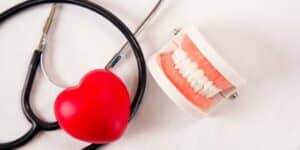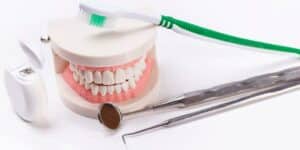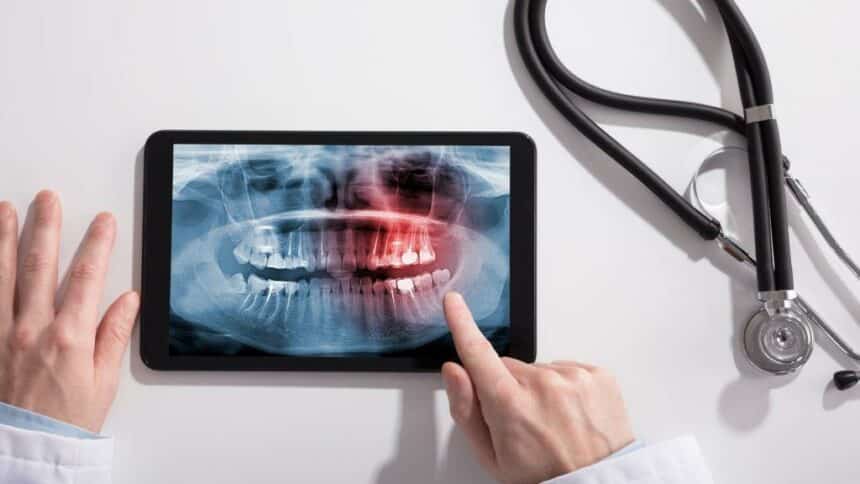Poor dental health affects the health of the whole body, but it also works the other way round. Diabetes, digestive problems or insufficient vitamin D can cause malocclusion, tooth decay, damage the enamel and even change the colour of the teeth. Here are the medications and diseases that spoil teeth.
Discolouration
It is not only poor diet that is responsible for tooth discolouration, but also certain medications and diseases. Examples include antibiotics from the tetracycline group, which further damage the enamel. In particular, they should not be given to young children under 8 years of age. In the case of discolouration developed in such toddlers, the changes are irreversible.
Find out how best to look after your child's teeth in our article -. How do you look after milk teeth in children and why is it so important? And if your little one already has his or her first teeth and has never been to the dentist before, you should make an appointment as soon as possible. Why this is so important and what your child's first meeting with the dentist is like - find out in our material "Your child's first visit to the dentist in the UK".

Back on topic, diseases that spoil teeth and cause discolouration can include jaundice, as well as liver damage. These cause the teeth to have a green-brown colour. With porphyria - a rare blood disease - they turn pink.
Excess fluoride is also responsible for discolouration. Too much of it causes changes in the enamel ranging from small spots to brown discolouration, but also tooth brittleness.
Tooth discolouration is very much influenced by the aforementioned diet, if you want to find out what to eat to look after your teeth at the same time read our article "9 products to help you keep your teeth healthy".
What we eat is not only important for our teeth, but obviously for our entire digestive system. If we have problems with it, we will also have problems in the mouth. Gastric reflux and peptic ulcer disease, cause excess acidity. Acid erosion of the enamel then occurs and caries develops as a result.
Diseases that spoil teeth
It is not uncommon for illnesses to damage our entire body, including our teeth. Sometimes all it takes is a simple cold and a weakened body, and the number of inflammatory foci in the mouth increases, often accompanied by pain.
Among the diseases that spoil teeth is diabetes. People who struggle with this disease have an increased susceptibility to infection at the same time as there is impaired tissue healing. Hence, they are more likely to have problems with gums and periodontitis. Of course, if they follow their diet and take proper care of their oral hygiene and visit the dentist regularly, the risk of dental problems will be lower.
Important! The aforementioned periodontitis is a disease which affects as many as 70% Poles, and what exactly it is, what its causes are and how to treat it - you can find out in our article Modern periodontitis treatment in the UK with Vector Paro Pro.
Also people suffering from epilepsy have a big problem with their teeth, especially mechanical damage. To minimise these, it is worth remembering that during a seizure, it is better not to put anything hard in the mouth of the affected person. A soft bandage will be much better instead.
Cancer - one of the worst diseases to spoil your teeth
Teeth are very much affected by cancer, especially the treatment methods used. Chemotherapy reduces immunity, which consequently causes frequent inflammation of the gums and other periodontal problems leading to loosening and loss of teeth.
Some cancers can cause bone and tooth root atrophy. This is why regular visits to the dentist are so important, if possible. During cancer treatment, we recommend that these take place every six weeks on average, in order to be able to react to changes in the mouth in real time. A proper diet and regular brushing of the teeth with a toothbrush and toothpaste selected for you, as well as flossing, are also very important during this period.

Lack of sunshine
Vitamin D is essential for the proper functioning of the entire body, and a deficiency can have its serious consequences. In children, it causes crookedness. In the oral cavity, it manifests itself in malocclusion, delayed teething and the occurrence of irregularities in the shape of the crowns. Very often, these consequences end up in orthodontic treatment, which exposes the child to pain and inconvenience, and you to costs.
So make sure you get enough vitamin D in your body and your little one's body. This is not always possible naturally in the UK, so opt for supplementation in this area. This is especially important during the autumn and winter months.
Just as important as vitamin D is a proper calcium-phosphate balance. Its disorders cause underdevelopment of enamel and dentin, making teeth more brittle and porous, prone to damage.

Don't let yourself get sick and take care of your teeth
Remember that diseases that spoil your teeth should never be an excuse for your neglect and lack of hygiene.
When it comes to the diseases mentioned, prevention has a very important place. It is equally important if you are not struggling with any of them. Very often our health is spoiled by "teeth". You can read more about this in our article "Decayed teeth a danger to the health of the whole body".
So remember to practice good oral hygiene, i.e. brushing your teeth at least twice a day and preferably after every meal. Flossing and mouthwash. And regular visits to the dentist, at least once every 6 months. In addition to hygiene ( more on this topic here) your dentist is able to notice even the smallest change in your mouth and start treatment immediately. This avoids possible pain and long and costly treatment.


